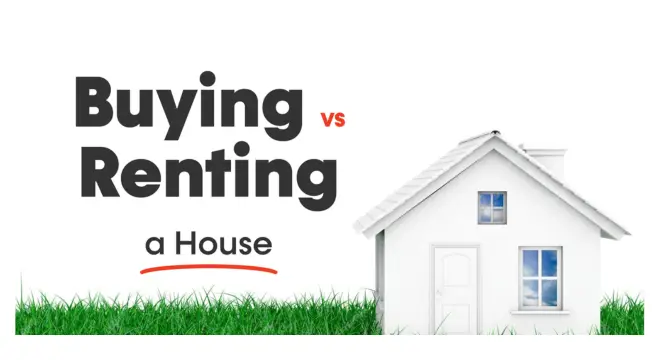Trump’s Housing Overhaul: Agency Closures & Layoffs
Can you imagine going to work one day… and suddenly being told you don’t have a job anymore? What if your office was locked, and no one informed you ahead of time? And what if it all happened because of a political decision — not because of your performance?
That’s exactly what’s happening in early 2025. Under the Trump administration, big changes have started in the federal housing system. Offices are being shut down. Employees are being escorted out. Top officials are being removed — all without warning.
In this article, we’ll look at how these closures are happening, how federal workers are being affected, and what this move really means on a political level. This isn’t just about jobs — it’s about a major shift in how the government handles housing.
2. What Led to the Sudden Closure of Key Housing Agencies?
So, what really went down?
Two major offices under the Federal Housing Finance Agency (FHFA) were suddenly shut down. No warning. No time to prepare.
Not just that — board members from Fannie Mae and Freddie Mac were removed from their positions, just like that. These are two of the biggest names in the housing finance world, and removing their leadership so quickly sent a big shock across the system.
To make it even more intense — the Department of Housing and Urban Development (HUD) closed its Field Policy and Management office.
And here’s the most unbelievable part:
Employees were actually escorted out of their offices. No chance to pack up properly, no formal goodbyes. Just walked out by security.
It’s not just a policy change — it’s a dramatic shake-up.
3. Who Is Behind These Changes?
1. New Leadership: Bill Pulte has been appointed as the new director of FHFA (Federal Housing Finance Agency). Pulte is a well-known businessman and has a lot of control over housing policies. Under his leadership, many important changes have been made.
2. Pulte’s New Role: Pulte also made himself the chairman of both Fannie Mae and Freddie Mac. These two organizations control a large part of the U.S. housing market, and this move will greatly influence future decisions about housing policies.
3. Trump’s Plan: The Trump administration aims to streamline the housing system, meaning they want to make the government’s housing system more efficient and manageable. These changes are being made to reduce the capacity of federal agencies and focus them on the most important tasks.
4. Impact on Employees
- Job Losses: With the recent changes, around 10% of the FHFA workforce lost their jobs. This means that many employees were either placed on administrative leave or laid off. This major reduction affected not only the morale but also the financial stability of many employees.
- Tension in the Working Environment: The sudden job cuts created a lot of tension among the remaining employees. Many felt uncertain about their future and the stability of the agency. The workplace atmosphere became more stressful as employees worried about potential layoffs and the impact of these changes on their roles.
- Employees’ Reaction: Many employees strongly opposed these cuts. There was a lot of frustration and concern about the sudden layoffs and restructuring. The American Federation of Government Employees (AFGE), the union representing workers, also reacted, demanding to bargain about the reductions. However, they didn’t get a clear response from the department.

5. Bigger Picture: Why Is This Happening?
Have you ever thought — why all this sudden change? The answer is the larger vision of the Trump administration.
- Trump’s Vision: The agenda is to reduce the size of the federal government. Overall, Trump wants many government programs, especially those related to housing and social services either pushed to the private sector, or de-powering the agencies.
- More Centralized Control: New leadership will come into agencies like FHFA and HUD, with the task of streamlining — which is more centralized control and fewer entities will get to make decisions faster.
- Impact on Real Estate and Housing: By reducing the size and power of the agencies, the future of affordable housing has never been more murky. There is potential for real estate investors, and very difficult for low-income families to find a place to live.But the real question is — will this new style of government empower the people, or will it be just a transfer of power from one self-serving set of institutions, to other powerful institutions?
6. Political Reactions & Public Opinion
The decision has led to significant political and public backlash.
- Democrats: Democrats not surprisingly are strongly opposed to the announcement. They argue that the elimination of jobs and the termination of critical housing offices has a direct impact on working-class families and at-risk communities – many of them, including NY Gov. Hochul have called the decision reckless and harmful.
- Republicans: Alternatively, many Republicans welcome the decision, believing it is necessary to pursue efficiency in a smaller federal government and ultimately eliminate wasteful spending. To them it is a positive first step to increasing efficiency in the system and reducing taxpayer burden.
- Public response: The general public appears to be divided. Many buy into the idea of a smaller government but many others are afraid of the negative impact on housing support, their lives, and on the lives of the affected federal employees. Many Americans were taken by shock by the abruptness of the closures.What do you think—do major changes happen without the involvement of the people affected?
7. What’s Next?
So what will happen next? This is the big question.Are other departments going to be cut?
Possibly. Based on the trends in actions so far, other offices under HUD and FHFA could see cuts over the next few weeks. The administration’s apparent desire to move fast and consolidate clearly raises the prospect of further cuts.What about the staff? For many staff, their futures are completely unknown. Some are on administrative leave already, while others are awaiting notices about layoffs. The union is working to seek justice for the staff, but there are no guarantees at this stage
.And what does that mean for housing policy? The Trump administration clearly desires more centralization and less people involved in the process. More private involvement, cutting public housing programs, less focus on affordable housing priorities—what that means for the average citizen remains to be seen.Are we looking at a radical change to how housing is designed and delivered in America? It’s starting to look like that.
8. Conclusion
So far, we’ve seen how the Trump administration made a major shake-up in early 2025 — shutting down key offices in FHFA and HUD, laying off employees, and pushing the federal housing system in a new direction. Leadership changed, rules were reshaped, and uncertainty grew among workers and the public.
Now a question for you:
If you were a government employee and got escorted out of your office without any warning — how would you react?
Think about it… because these decisions aren’t just about policies, they impact real lives.


